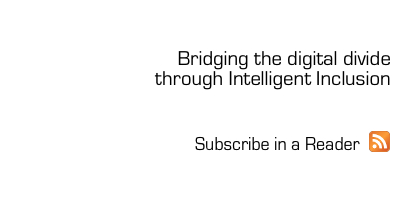
Last week we witnessed the worst in mankind: terrorist attacks in Boston. A frantic search for the culprits began right after the bombings, but this time something was different, leading to a fast capture of the involved.
Since this is a highly sensitive topic, I want to start by stating that I am against all types of killings, and I strongly condemn what happened in Boston. I grew up in the 70s, living in a country with military dictatorship, and human rights were not really respected here – actually, they were not at all. One thing that I saw over the years is that you will always find someone with a different point of view. It doesn’t matter if 10, 20 or 10.000.000 people were killed, there is always someone justifying the massacre. We should stop killings all over the world, and my prayers go to those who died, and those who have lost loved ones in Boston.
Going back to this bombing, it was the first time that I saw such a strong impact from technology on a high-profile case. A couple decades ago, finding the culprits was a task that required very extensive interviews with people present to the event, sketching faces and trying to find people in large crowds. You got lucky if you had a few images from local news photographers. This time, the FBI went to the public and asked for images, videos, anything related to the event. It paid off, and everything happened in ways that no one could foresee a few years ago.
In one of my previous posts, I stated that privacy in the digital age is almost gone. I am willing to take a step further, and state that it is gone for good. We can argue if that is good or bad, if we like it or not, but we can’t do anything to stop it anymore, as we saw in this case.
We all became reporters with powerful devices. My cell phone has an 8-megapixel camera, my Nikon D3100 has 16.1 Megapixels, and both are capable of filming in high-definition. They are not top-of-the-line, and any point-and-shoot camera has more than 12 Megapixels. Next, remember that thousands of people present were taking dozens of pictures of everything, something unheard by older people like me – we would use a 36-picture roll of film in a 2-week vacation. Now you combine that with data recorded by surveillance cameras, around the clock. Not one, or two, but hundreds or thousands. Areas like Lower Manhattan have more than 2,900 surveillance cameras.
The amount of information generated and recorded is setting records, month after month. But this information would be useless if it remained locked inside a home, or a camera. Without connectivity and sharing, it would be the same way as in the past. Not anymore, the Internet has changed this too. The FBI formally asked for help to identify the suspects, and received videos, images and tips. According to Wikipedia, the Boston Marathon is the largest event in New England, with over 500,000 spectators. So, if one-third of them took at least 4 pictures, we likely have over half a million high-definition images of the event. The infrastructure that the FBI had to use to receive so many large images, videos, and to go through them to find the suspects is beyond my comprehension.
Big Brother is already here and will stay with us forever.
Moving a bit towards the dark side, the Internet also became the perfect tool for a modern-day witch hunt. Reddit users mistakenly identified an innocent student from Brown University, demonstrating once more that everything can be used for good or evil.
If you believe that you still have some privacy, remember that in a couple of years people will be wearing Google Glasses, Phones will go over 20 megapixels, HD recording will be mainstream, and 4G will have a wide global coverage, bringing enough speed to share all this information everywhere.
I live in São Paulo, a city known for its size. For security reasons, I am installing my surveillance cameras this week, adding a new source to the Big Brother in my neighborhood. Honestly, it took me some time to realize that I can’t do anything to change this, but now I have accepted it, and it is fine. That is the price that I pay to live in a large city, with all the benefits and the problems, and I can always move to the rural areas if I wish a bit more privacy.
It seems that we have moved into a new age, with ubiquitous connectivity, but that is not really true. This is a reality for around 1/3 of the global population, the ones connected. This digital divide is increasing the gap as never before, leaving people not connected decades behind the people that are benefiting from technology. The Internet is much more than just a place to hang and have fun; it is a source of knowledge and efficiency. As a quick example, I did more than 50 hours of high-quality training in the last 3 weeks, mainly at nights and weekends, without living my home. We have to continue to push for more digital inclusion activities and programs, enabling the rest of mankind to evolve along with us.
So, what is your opinion?
Caetano Notari
Related posts:


{ 2 comments… read them below or add one }
Great post, Caetano. Interestingly, we also are installing video cameras on our street. A drug dealer has been using our street to set up car transactions (ironically, using Tumblr to announce where he will be that day). The police are too slow to respond when we see the activity, but they offered to put cameras on our street. In fact, our neighborhood might pitch in to cover the cost of the cameras and monitoring (about $200 upfront and $25 a week).
At the end of the day, people will still have private places to go. But when you do something that negatively impacts others (placing bombs or dealing drugs on the street), there is no right to privacy.
Hi Bob,
Thanks. I am impressed to see that even in the US the police do not respond very fast, I thought that things were much worse down here in Brazil.
My cameras are working well, givings us a bit more security. It is sad that we have to rely in such tools, but that is something that I learned to live with.
I agree with you, if you decide to live in a society, you have to live by the rules established to benefit the majority. If a reduction in privacy will help us live safer, I am not against it, and accepting these things helped me to live better.
You must log in to post a comment.